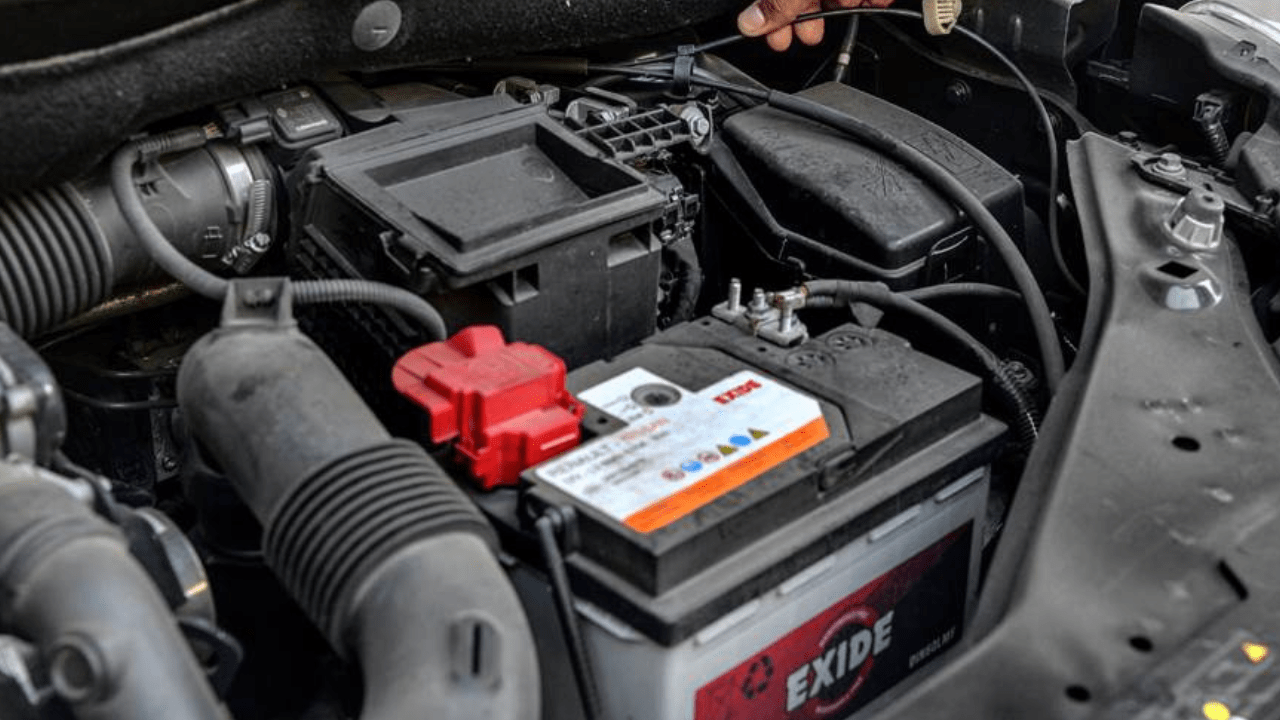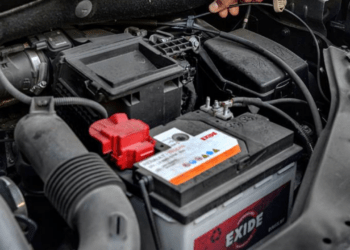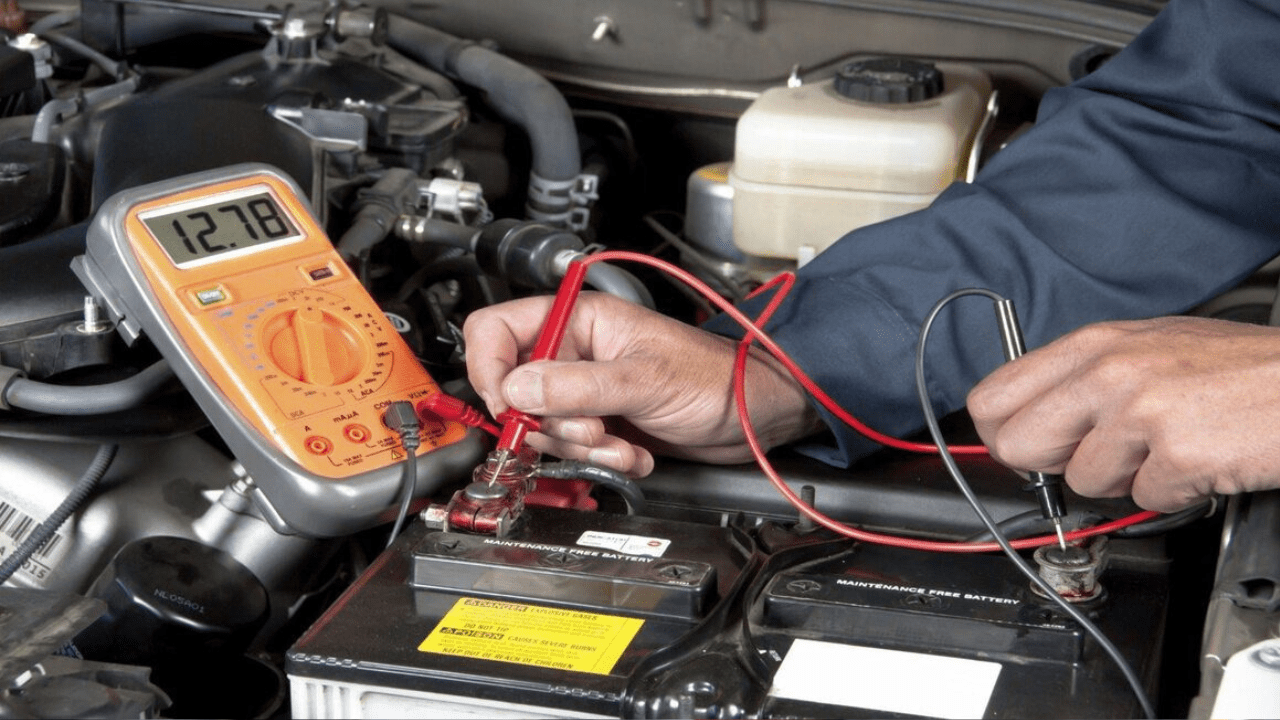Water ingress can cause serious damage, follow proper battery car care practices during monsoons

Yes, water ingress can cause serious damage to a car battery, especially during the monsoon season. Here are some battery car care practices you should follow during monsoons:
- Park your car in a covered area whenever possible. This will help to protect your battery from the rain and moisture. If you don’t have access to covered parking, consider using a car cover.
- Inspect your battery regularly for signs of corrosion or damage. If you see any corrosion, clean it off with a baking soda and water solution. If the battery is damaged, it should be replaced.
- Avoid letting your battery run down too low. A low battery is more susceptible to damage from water ingress. If you know you’re going to be driving in heavy rain, make sure your battery is fully charged.
- Don’t wash your car with a pressure washer. The high-pressure water can force water into your battery and cause damage. If you need to wash your car, use a soft cloth or sponge and a mild soap solution.
- If your car battery does get wet, dry it off immediately. Use a clean, dry cloth to wipe off the battery and the terminals. If the battery is still wet, you can use a hair dryer on the cool setting to help dry it out.

By following these simple car care practices, you can help to protect your battery from damage during the monsoon season.
Here are some additional tips to keep your car battery in good condition during monsoons:
- Keep the battery terminals clean and free of corrosion. You can use a baking soda and water solution to clean the terminals.
- Check the battery water level regularly. If the water level is low, add distilled water.
- Replace the battery every 3-5 years. As the battery ages, it will lose its ability to hold a charge.
By following these tips, you can help to ensure that your car battery lasts for many years to come.
Water ingress in your car’s battery can cause serious damage! Follow these proper battery car care practices during monsoons to avoid any issues.
Water ingress in your car’s battery can cause serious damage! Follow these proper battery car care practices during monsoons to avoid any issues. During the monsoon season, it is important to take extra care of your car’s battery. Water can easily enter into the battery and cause serious damage. To avoid any issues, follow these proper battery car care practices: – Make sure the battery is properly sealed and there are no gaps or holes where water can enter – Check the battery regularly for any signs of water damage – If the battery does get wet, dry it off immediately and do not use it until it is completely dry
Water ingress in your car’s battery can cause serious damage!
Water ingress in your car’s battery can cause serious damage! Follow these proper battery car care practices during monsoons to avoid any issues. During the monsoon season, it is important to take extra care of your car’s battery. Water can easily enter the battery through cracks and crevices, and this can cause serious damage. The battery acid can mix with the water and cause corrosion, which can lead to shorts and other electrical problems. To avoid this, it is important to regularly check your car’s battery for any signs of water damage. If you see any corrosion or other damage, it is important to have the battery serviced by a qualified mechanic. In addition, it is important to make sure that the battery terminals are kept clean and free of debris. It is also important to avoid driving through puddles of water. This can cause water to enter the engine and other electrical components, which can lead to damage. If you must drive through water, it is important to do so slowly and carefully. By following these simple tips, you can help ensure that your car’s battery lasts for many years to come.
Follow these proper battery car care practices during monsoons to avoid any issues.
Water ingress in your car’s battery can cause serious damage! Follow these proper battery car care practices during monsoons to avoid any issues: 1. Store your car in a garage or under a carport to protect it from the elements. 2. Check your battery regularly for signs of corrosion. If you see any, clean it off with a baking soda and water solution. 3. Keep your car clean, inside and out. Mud and grime can accelerate corrosion. 4. If your battery is more than three years old, have it tested by a qualified mechanic. If it needs to be replaced, do so as soon as possible. 5. If you live in an area with severe weather conditions, consider installing a battery blanket or charger to help extend the life of your battery. By following these simple tips, you can help ensure that your car battery lasts for years to come.
Check the battery regularly for any leaks or cracks.
Water leakage into car batteries is a serious problem that can cause considerable damage. That’s why it’s important to follow some simple battery car care practices during monsoons, to avoid any issues. The battery is perhaps the most crucial component of your car. It provides the electrical power needed to start the engine, and keep all the accessories running. However, it’s also one of the most delicate parts of the car, especially when it comes to water damage. Water ingress can cause a number of problems for your battery. The most serious issue is the possibility of short-circuiting, which can lead to a fire. Even if there isn’t a fire, water damage can cause corrosion, which will eventually lead to the battery failing. That’s why it’s so important to check your battery regularly for any leaks or cracks. If you do find any damage, it’s important to get it fixed immediately. In the meantime, you should avoid using any electrical accessories in your car, as this could cause a short-circuit. It’s also a good idea to keep your battery clean and dry, to prevent any water damage. You can do this by regularly wiping down the battery terminals with a cloth. If the terminals are particularly dirty, you can use a brush to clean them. Finally, you should make sure that your battery is properly secured. This will prevent it from moving around and becoming damaged. You should also check the battery terminals regularly to make sure they’re tight. Following these simple tips will help to ensure that your car battery lasts for many years to come.

If the battery is leaking, remove it immediately and replace it with a new one.
Water ingress in your car’s battery can cause serious damage! Follow these proper battery car care practices during monsoons to avoid any issues. Car batteries are susceptible to water damage, and this can be a serious problem during the monsoon season. If your battery is leaking, it is important to remove it immediately and replace it with a new one. Water can enter the battery through a number of different ways, including through the seals or through cracks in the case. Once inside, the water can cause a short circuit, which can damage the battery and even cause a fire. If you notice that your battery is leaking, take it to a mechanic or a car care specialist to have it replaced. Do not attempt to fix it yourself, as this can be dangerous. Leaving a water-damaged battery in your car can be extremely dangerous, so be sure to take care of the problem as soon as possible. With proper care and maintenance, you can avoid water damage to your car battery and keep your car running smoothly during the monsoon season.
Make sure the battery terminals are clean and free of corrosion.
It is important to keep the battery terminals clean and free of corrosion, as water ingress can cause serious damage to the battery. Follow these proper battery car care practices during monsoons to avoid any issues: 1. Check the battery regularly for any build-up of corrosion. If present, clean it off with a brush or cloth. 2. Ensure that the battery terminals are tight and secure. Loose terminals can cause corrosion and damage to the battery. 3. If your car is parked in an area where it is likely to get flooded, cover the battery with a waterproof cover to prevent water damage. 4. Avoid driving in heavy rain or through puddles, as this can splash water onto the battery and cause corrosion. 5. If your car battery does get wet, dry it off as soon as possible and then have it checked by a professional.
If the battery terminals are corroded, clean them with a wire brush and apply grease to prevent further corrosion.
Water ingress in your car’s battery can cause serious damage! Follow these proper battery car care practices during monsoons to avoid any issues. One of the most important things to keep in mind during monsoon season is to keep your car’s battery terminals clean and free of corrosion. If the terminals become corroded, it can cause serious damage to your car’s electrical system. To prevent corrosion, it is important to clean the terminals with a wire brush and apply grease to them on a regular basis. This will help to keep the terminals clean and free of moisture. In addition, it is also important toCheck the battery regularly for any signs of corrosion or damage. If you find that the battery terminals are corroded, it is important to clean them immediately. You can do this by using a wire brush to remove any corrosion. Once the terminals are clean, you should apply grease to them to prevent further corrosion. It is also important to check the battery regularly for any signs of damage. If you find any damage, it is important to have the battery replaced as soon as possible. Water ingress in your car’s battery can cause serious damage! Follow these proper battery car care practices during monsoons to avoid any issues.
Never let the water level in the battery drop below the minimum level.
Water ingress in your car’s battery can cause serious damage! Follow these proper battery car care practices during monsoons to avoid any issues. It is important to never let the water level in the battery drop below the minimum level. Doing so can lead to a number of problems, including: • premature battery failure • reduced battery capacity • corrosion of battery components • formation of hazardous battery acids • increased risk of electrical fires To avoid these issues, regularly check the water level in your battery and top it up as needed. If you notice any corrosion or damage to the battery, have it inspected and serviced by a qualified technician.
As the rainy season sets in, it is important to be extra careful about water seepage and ingress in your car’s battery. Even a small amount of water can cause serious damage to the battery, leading to expensive repairs. To avoid any issues, make sure to follow these proper battery car care practices during monsoons.







